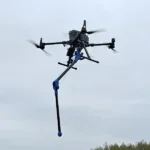
Unlike Russia, which didn’t mount the expected cyber-attacks against U.S. and allied critical infrastructure the West had feared when that country invaded Ukraine a year ago, China is unlikely to be so cautious, a senior Department of Homeland Security Official warned on Monday. This is a lesson that China is learning from that invasion, Jen Easterly, director of the Cybersecurity and Infrastructure Security Agency (CISA), said after an address at Carnegie Mellon Univ. in Pittsburgh. “I think they've seen that…

 By
By 











